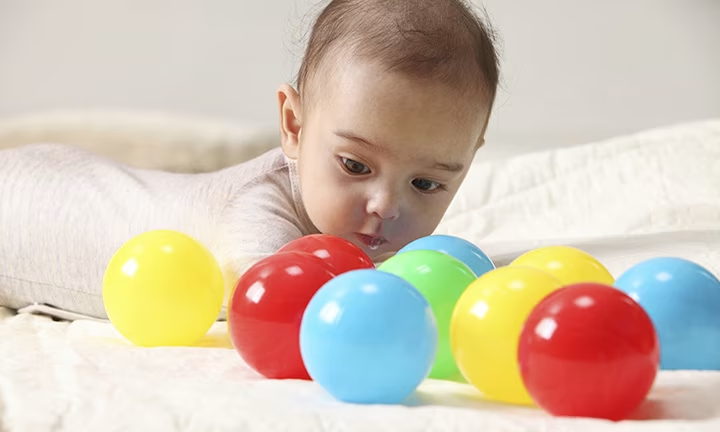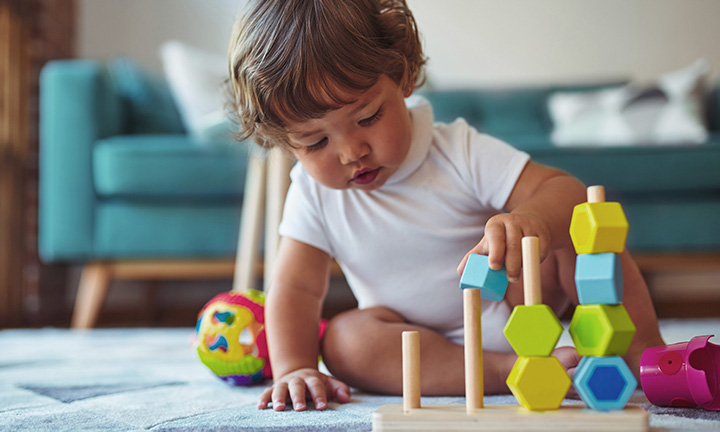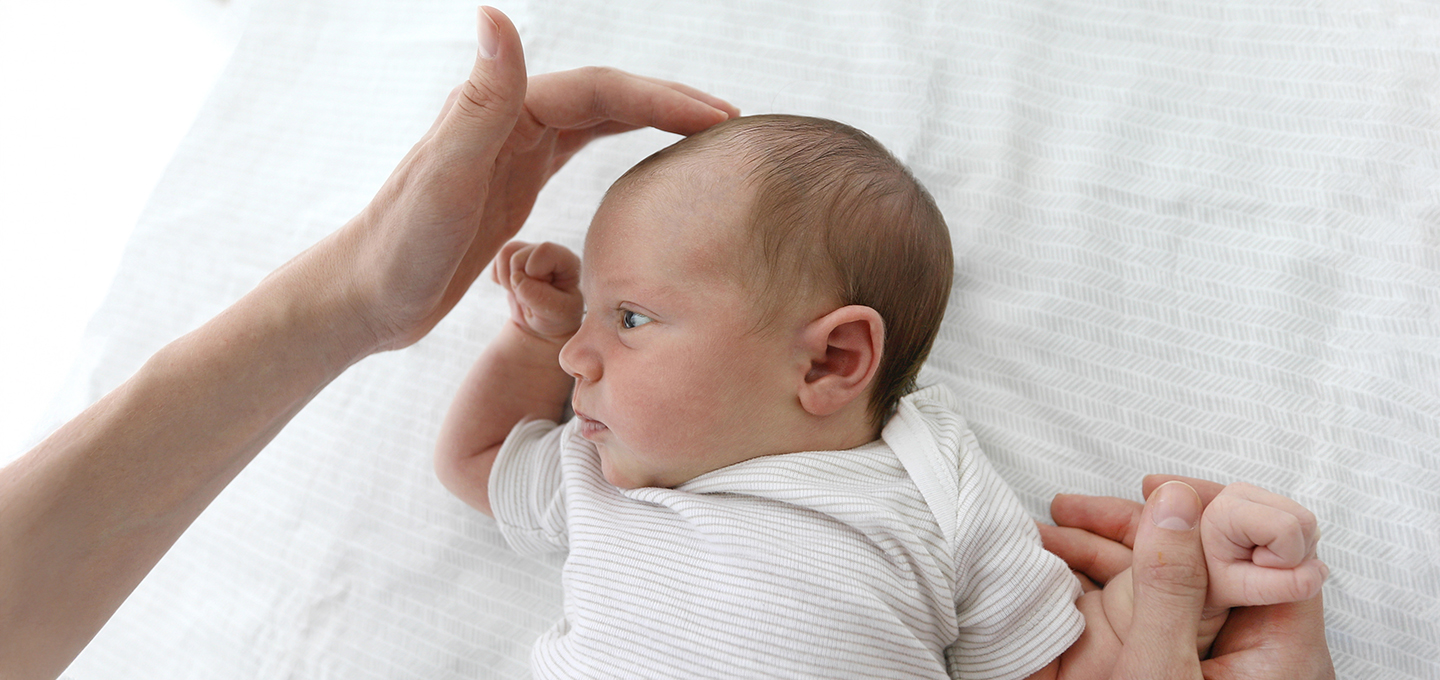
What You Need To Know About Object Permanence
Watching your little one grow and start to understand the world around them is one of the truly magical aspects of parenting. One of the cognitive skills your baby will develop during their first year of life is grasping the concept of object permanence.
Read on to learn about object permanence and see how you can help your baby grasp this important skill. You may be glad to hear that it will involve playing plenty of peek-a-boo!
What Is Object Permanence?
Piaget’s theory of object permanence describes a child’s ability to recognise that objects continue to exist even when they’re not in sight. Early on, babies don’t yet have the cognitive skills to understand that what they can’t see still exists. In the minds of young infants, the world only consists of what they can see in front of them at any given moment.
For example, your baby may assume you’ve simply vanished into thin air when you leave the room. The same goes for concealing objects, such as when you cover a toy with a blanket. To your baby, the toy is now gone forever.
Over time, your little one will start to grasp that you and the toy continue to exist, even though you’re not always in plain sight.
When Does A Child Develop Object Permanence?
Babies usually have some understanding of the concept of object permanence by around 9 months old, but keep in mind that every child develops at their own pace. Talk to your health visitor if you have any concerns about your baby’s development.
You can tell that your baby is starting to grasp object permanence if they start looking around for a toy you've just hidden.
Have you noticed your baby clinging to you and making a fuss or crying when you leave their sight? They may be experiencing separation anxiety, which usually starts around this time, too.
Separation anxiety is an entirely normal part of your child’s development and common among young children between the ages of 6 months and 3 years old.
While it may only feel natural, there’s no reason to feel guilty when your baby is anxious without you. Instead, it’s a good idea to focus on making your baby feel more secure and grasp the notion of object permanence. Once they understand that you’ll be coming back each time you leave, the crying may subside to a certain degree.
When Do Babies Have a Complete Understanding of Object Permanence?
By the time your little one reaches 12 months old, they will most likely fully understand the concept of object permanence.
For example, if you hide a toy underneath a blanket, your baby will know to pick up the blanket and look for the toy. And if you hide the toy and then remove it from its hiding place and hide it someplace else, they will assume it still exists and will keep looking for it.
How Can You Help Your Baby Learn the Concept of Object Permanence?
Object permanence is a natural part of your baby’s cognitive development, and your little one will come to learn that objects continue to exist even when they can’t see them.
You can help foster this part of cognitive development by playing games with a fun element of surprise like peek-a-boo and hide-and-seek, or by hiding and revealing objects.
Is Peek-a-Boo an Example of Object Permanence?
Peek-a-boo is a great example of a game that can help your baby understand the concept of object permanence.
You could also play other similar games with your baby. You may find your little one loves games where people or things disappear and reappear. A Jack-in-the-Box can cause your baby to burst out laughing, while simultaneously developing their cognitive skills. Try saying ‘Hello’ as the Jack-in-the-Box pops out and ‘Bye Bye’ as he goes down to reinforce your baby’s understanding that the funny little puppet is still there.
The Bottom Line
Watching your baby grow and develop is a truly magical thing. There’s nothing quite like seeing them take in the world around them while their horizons continue to expand.
The concept of object permanence is one of the important life skills your baby will learn at this age. Over time, playing games like peek-a-boo and Jack-in-the-Box over and over could help give your baby the reassurance that you’re always there for your little one, even when you aren’t both in the same room.
Read more about Baby
Join Pampers Club and get:














